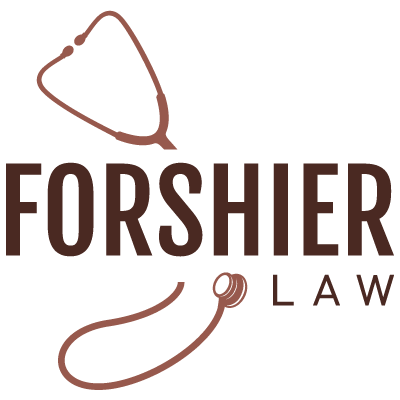Long-term care and the ability to live in the community in a group or other residential setting is a crucial part of health care and human services. Nurses become an important part of residents’ lives, learn how to meet their needs in respectful and appropriate ways, and build social connections with residents who often spend limited time in social situations. Because of the role they play in residents’ lives, nurses are expected to meet stringent safety requirements.
Being disqualified from direct care is devastating to a nurse. Not only do they suddenly lose their ability to work, but they also lose the connection to their clients that they care about. Forshier Law LLC focuses on healthcare licensing issues. Our experience with the Department of Human Services (DHS) and the Minnesota Department of Health (MDH) is extremely valuable to nurses who face losing their careers. Schedule a free phone consultation with a professional license defense attorney today. Schedule a free phone consultation with a professional license defense attorney today.
Disqualification from Direct Care
Minnesota Statute 245C.14 covers disqualification from direct contact. If a background check or investigation uncovers any of the following situations, the nurse will be disqualified from providing care.
- Conviction, admission, or Alford plea related to certain crimes listed in Minnesota Statute 245C.15 that would make them unfit to provide care
- The preponderance of the evidence indicates that an individual has committed one of the disqualifying crimes
With few exceptions, a person disqualified from direct contact cannot have access to a person receiving services.
Reconsideration Requests
Minnesota law allows individuals who have been found to have substantiated maltreatment or neglect claim to request a reconsideration. Note that you must meet strict deadlines to have your request granted. When you request reconsideration, you have to provide proof that:
- The information used to disqualify you was incorrect
- The information used to demonstrate that maltreatment was serious or recurring was incorrect
Additional information may be requested. If you do not provide it, the reconsideration request may be immediately dismissed.
Fair Hearing Rights
If your reconsideration request does not result in having your disqualification lifted, you have one option left to clear your name for a finding of maltreatment. You may request a fair hearing. You may not request this if your finding of neglect or maltreatment is considered conclusive.
There are several situations in which you cannot request another hearing after a reconsideration decision. Except under very specific circumstances, someone disqualified based on a conviction, admission, or a plea to a relevant crime cannot go further than a reconsideration request.
The laws surrounding reconsideration requests and fair hearing rights are extremely complicated, and many different factors determine whether or not you can request reconsideration or request a fair hearing. Ideally, you should be working with a lawyer long before you reach the point of a reconsideration request. Even if you have done everything on your own up until this point, though, you should still work with a professional licensed defense attorney as you explore your final options for reversing a disqualification.
Forshier Law, LLC is Here to Help You Protect Your Future
A disqualification can change your career plans and leave you without a path forward. Additionally, the disqualification or a finding of maltreatment even if not recurring or severe will be reported to your licensing Board where you may suffer severe repercussions. You need to use every tool at your disposal to fight it. Forshier Law, LLC is a professional license defense firm dedicated to helping workers like you continue working in long-term and other care settings. We know that misunderstandings happen and that complaints can often be made by malicious or misinformed people. To discuss your case and figure out how to defend yourself against complaints, reach out online or call us today. We’ll get you set up with a free phone consultation and take a look at your case.
